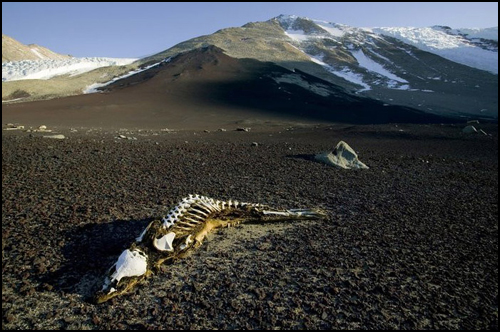Slay Cat Blues
Friday, February 29, 2008
posted by Steve Tompkins

Great and terrible flesh-eating beasts have always shared landscape with humans. They were part of the ecological matrix within which Homo sapiens evolved. They were part of the psychological context in which our sense of destiny as a species arose. They were part of the spiritual systems that we invented for coping. The teeth of big predators, their claws, their ferocity and their hunger, were grim realities that could be eluded but not forgotten. Every once in a while, a monstrous carnivore emerged like doom from a forest or river to kill someone and feed on the body. It was a familiar sort of disaster–like auto fatalities today–that must have seemed freshly, shockingly gruesome each time, despite the familiarity. and it conveyed a certain message. Among the earliest forms of human self-awareness was the awareness of being meat.
That’s from David Quammen’s memorable-if-not-haunting 2003 Monster of God: The Man-Eating Predator in the Jungles of History and the Mind, a meditation on how “the alpha predators, and the responses they evoke, have transcended the physical dimension of sheer mortal struggle, finding their way also into mythology, art, epic literature, and religion.” One of the alpha-est predators, arguably the iconic carnivore of the Cenozoic Era, is figuring very prominently indeed in the trailers and promos for the March 7 release 10,000 B.C., directed by Roland Emmerich: Smilodon, the sabre-tooth tiger. Aficionados of Nature red in tooth and claw hope the film’s CGI and editing create charismatic killer cats that surpass Ray Harryhausen’s stop-motion sabre-tooth in Sinbad and the Eye of the Tiger and reclothe the animal in the dignity that was shed with the Denis Leary-voiced Diego in Ice Age and Ice Age 2. In honor of the occasion, I’d like to pay tribute to the two foremost mega-felines in all of modern fantasy, the gliding, pouncing juggernauts of Robert E. Howard’s “Beyond the Black River” and Karl Edward Wagner’s “Two Suns Setting.”










